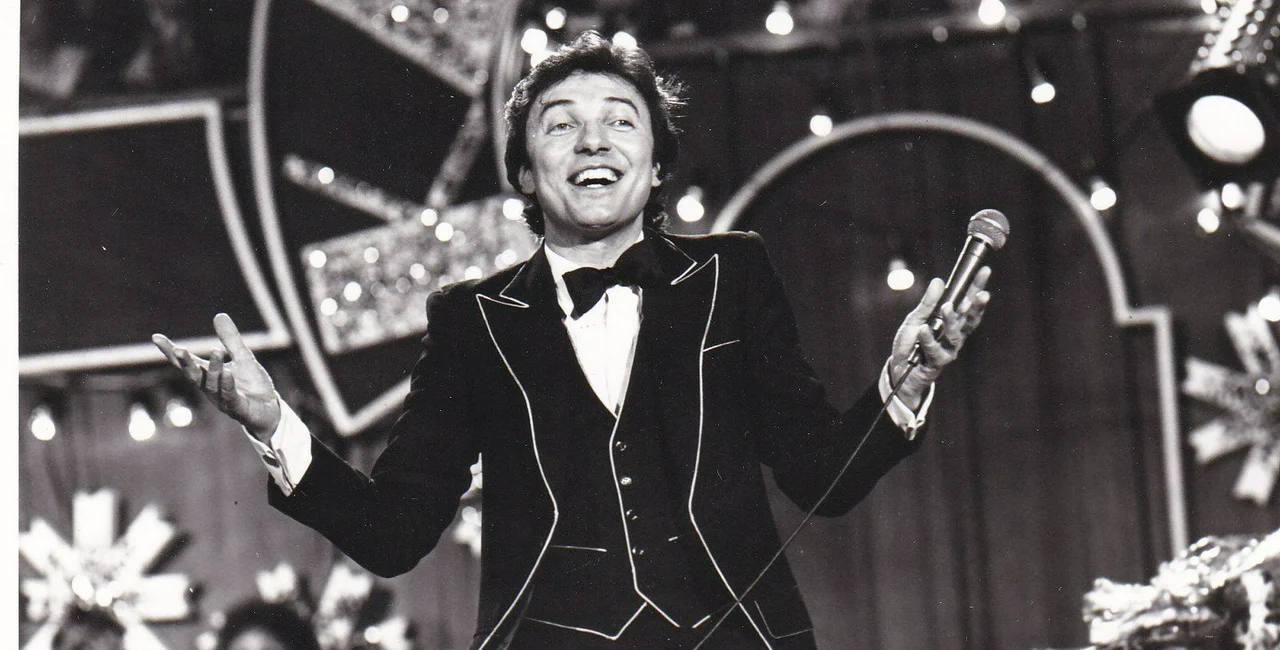Karel Gott, who passed away at the age of 80 on October 1, for decades was the heart and soul of Czechoslovakia. Even in the darkest times, he was a spot of light that put joy in people’s hearts.
He earned several nicknames during his career such as the Golden Voice of Prague or the Sinatra of the East, but to Czech people, he was simply Kaja — a short from for Karel. He began his singing career in 1958, unsuccessfully competing in a talent show. That same year he began performing at a Prague cafe. In 1960 he began to travel abroad with the Czechoslovak Radio Jazz Orchestra.
His first single was released in 1962, and since then he has almost 300 solo albums — often several a year for more than 50 years — selling 50 million copies. His best-selling Czech album was Christmas in Golden Prague (Vánoce ve zlaté Praze), but his all-time best-seller was an album he released in Russian. He also has recorded in German, Italian, and English.
His music also appeared in many films, most notably in the 1964 musical The Hop Pickers (Starci na chmelu), where his signing voice is heard coming from the lead actor Vladimír Pucholt.
Country and Western was a popular crossover genre, and a very thin Gott contributed in 1964 with “Zdvořilý Woody” (Polite Woody), where he yodels a bit.
The tune from the
1964 hit “Adresát neznámý” (Address Unknown) may sound
familiar. It is a cover of the Beatles’ “From Me to You.”
He is back with more tricky vocal inflections in 1965’s “Trezor” (Safe), seen in a one-minute clip.
“Bum, Bum, Bum” from 1966 features cannons in a white set and Gott in a 19th-century uniform is a classic.
Another early appearance was captured by British Pathé, when he sings “Duj duj duj” in 1967 at a music festival called Bratislavska Lyra. He was identified only as a Czech pop singer.
In 1968, he even represented Austria in the Eurovision Song Contest but lost to the entry from Spain. He sang “Tausend Fenster.”
“Lady Carneval” was another hit from 1968. Several versions appear online, but the one by Suprafon is the official video.
He took a bit of a religious detour in “Amen, pravím vám,” wearing a cross and a dark outfit. The 1968 song was inspired by the melody from “Woman. Woman” by Jim Glaser & Jimmy Payne.
He returned to the Beatles again in 1968, this time singing the original versions of “And I Love Her” and “Michelle” in English while wearing a psychedelic outfit. Photos of the Fab Four by Richard Avedon can be seen taped to the TV cameras.
Herman’s Hermits song “There’s a Kind of Hush” was transformed into Gott’s 1969 song “Požehnej, bože můj” (Bless Me, God). It was one of standards throughout his career.
Unusually high production values can be seen in the promotional clip for “Láska bláznivá” (Crazy Love), shot at romantic locations in 1969.
Simon & Garfunkel’s hit “El Condor Pasa” inspired the 1971 cover “Nech mě spát chvilku dýl” (Let Me Sleep Longer).
Another cover from 1971 that proved popular was “Když jsem já byl tenkrát kluk” (Back When I Was a Boy), with the melody from Charles Aznavour’s “Heir Encore.”
Hits like “Kávu si osladím” (I Sweeten My Coffee), released in 1972, saw Gott’s hair notable getting longer.
Gott sang the theme song for the ever-popular fairytale film Tři oříšky pro Popelku (Three Nuts for Cinderella). The 1973 song “Kdepak ty ptáčku hnízdo máš” (Where Is Your Nest, Little Bird) is one of his best-loved songs.
The excesses of 1970s style are visible in the clip for “Nápoj
lásky číslo 10” (Love Potion Number 10), from a 1974 TV special.
One of his more touching covers is “Už z hor zní zvon” (The Bell Chimes in the Mountains), to the melody of the spiritual “Amazing Grace.”
He dons a white tuxedo for “Záhadnou lásku mám” (I Have a Mysterious Love), from 1975. The pop-driven song has a choir and some catchy guitar riffs.
Another cover of a Western hit was “Stokrát chválím čas” (I Praise You A Hundred Times), with the music from “Sometimes When We Touch.” It was released in 1978.
John Denver’s “Annie’s Song” was reworked into “Když milenky pláčou” (When Lovers Cry), a hit in 1982. The video sees him in a flashy red shirt, strumming an acoustic guitar.
He is back in ballad mode for “Jsi krásná” (Your Are Beautiful) in 1983. His hair is also getting shorter but still stylish.
Gott plays a school teacher in “Věčný laik” (Eternal Layman), who ditches his white robe to go out on the town. The 1983 song shows the influence of synthesizer pop of the era.
King’s robes are the uniform of the day for “To musím zvládnout sám” (I Must Do It Myself), a hit from 1984.
The influence of synth-pop can still be heard in “Zůstanu Svůj” (I Will Stay My Own), which Gott also recorded as “Du wirst es sein” in 1986.
“Když muž se ženou snídá” (When a Man and Woman Eat Breakfast), from 1992, finds Gott in an upbeat mood.
One of his later hits is “Forever Young,” which he recorded in Czech (Být stále mlád) in 2001 and German (Für Immer Jung) in 1999. It is a cover of the Alphaville new wave hit. He even did hip-hop versions — in German featuring Bushido in 2011 and in Czech with Leoš Mareš in 2018.
In terms of YouTube views, the version of “Forever Young” with rap by Bushido has the most views, with some 28 million.
He continued with collaborations in later years, recording “Kto dokáže” (Who Can) with the Slovak band No Name in 2017.
One of his last solo songs was “Ta pravá” (Truth), released in 2018.
In May 2019 he released a duet with his daughter Charlotte Ella Gottová called “Srdce nehasnou” (Hearts Will go On). It has over 16 million views on YouTube. Click on CC for English subtitles.












 Reading time: 4 minutes
Reading time: 4 minutes 






































